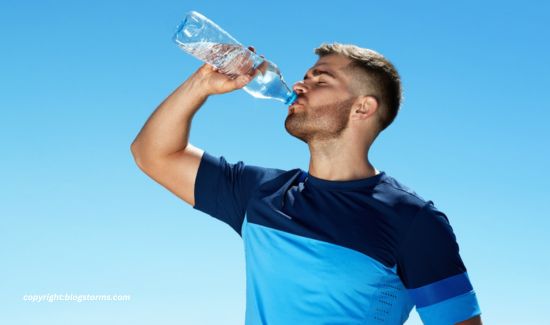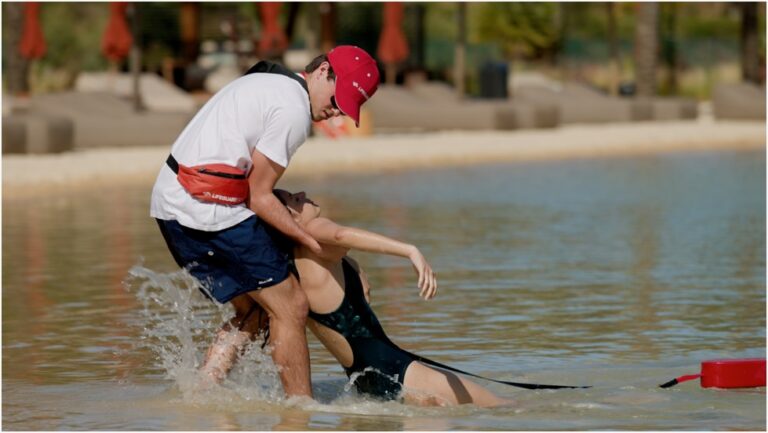Water safety is central for people of any age and swimming abilities. Whether you’re plunging your toes in a quiet pool or exploring the floods of the ocean, being mindful of water safety rudiments can forestall accidents and ensure a tomfoolery and charming time in the water.
Table of Contents
Know Your Environment: Surveying Water Conditions
Before entering any waterway, surveying the environment is crucial. Search for signs showing water conditions and areas of strength for like, unpleasant waves, or unsafe marine life. Continuously try not to swim in regions with obscure or dangerous conditions, and never swim in unguarded or confined regions.
Swim with a Mate: The Pal Framework
One of the least difficult yet best water safety practices is the mate framework. Continuously swim with a mate or in gatherings, as they can give assistance and backing if there should be an occurrence of emergencies. Amigos ought to watch out for one another and be prepared to act swiftly if help is required.
Administer Kids: Watching Out for Youthful Swimmers
Youngsters ought to never be left unattended close to water, no matter what its profundity. Assign a capable grown-up who knows how to swim and comprehends water safety to direct youngsters consistently. This management ought to be dynamic and centered, without distractions like phones or books.
Figure out How to Swim: Building Fundamental Swimming Skills
Figuring out how to swim is an essential part of water safety. Sign up for swimming illustrations to foster essential skills like drifting, floating, and legitimate breathing techniques. Lifeguard training programs offer extensive classes that show swimming skills as well as water safety protocols and emergency response procedures.
Wear Legitimate Gear: Utilizing Safety Equipment
It’s essential to wear appropriately fitting safety gear, particularly if you’re not a sure swimmer or on the other hand if you’re swimming in testing conditions. Instances of such gear incorporate life coats, buoyancy gadgets, and swim goggles, all of which can significantly improve safety and lift your confidence while in the water.
Keep Pool Guidelines: Complying with Safety Rules
When swimming in pools, it’s essential to observe the guidelines and rules laid out by lifeguards or pool specialists. These standards frequently incorporate regions assigned for plunging, profundity markers, and strategies against running on wet surfaces to forestall slips and fall.
Remain Hydrated: Significance of Hydration

Remaining hydrated is crucial for general health and well-being, particularly during physical activities like swimming. Try to drink a lot of water previously, during, and in the wake of swimming to forestall drying out, which can prompt weakness and muscle cramps.
Keep Away from Liquor and Medications
Polishing off liquor or medications previously or during swimming is exceptionally deterred as it can weaken coordination, judgment, and reaction time. These hindrances significantly increase the risk of accidents and drowning incidents in the water.
Be Climate Mindful: Observing Weather Patterns
Before going to the water, look at weather conditions, gauges and conditions. Try not to swim during, serious areas of strength for tempests, or other risky weather patterns that can present risks to swimmers’ safety.
Regard Your Cutoff points: Knowing When to Stop
It’s critical to perceive and regard your swimming cutoff points. Try not to propel yourself beyond your capabilities, particularly in testing or new water conditions. Enjoy reprieves on a case-by-case basis and pay attention to your body’s signs.
Look for Lifeguard Assistance: The Role of Lifeguards
Lifeguards play a crucial role in ensuring water safety at pools, beaches, and other aquatic facilities. If you’re questionable about water conditions or need assistance, make sure to get help from lifeguards. They are prepared professionals who can give immediate aid and direction in emergencies.
Continuing Education: Lifelong Learning for Water Safety
Beyond the fundamentals, focusing on continuous education and training in water safety is essential. Lifeguard certification programs presented by organizations like the American Lifeguard Association give far-reaching training in lifesaving techniques, emergency response, and advanced water safety protocols.
By consistently refreshing your skills and knowledge, you improve your safety as well as add to a culture of cautiousness and readiness in aquatic settings.
Conclusion: Resolving to Water Safety
In conclusion, water safety is an aggregate liability that requires mindfulness, readiness, and adherence to laid-out rules. By following these essential tips and remaining informed about lifeguard training, lifeguard classes near me, and lifeguard certification, people can appreciate swimming activities while limiting risks and ensuring a protected experience for everyone included.
Keep in mind that rehearsing water safety isn’t simply a skill; it’s a commitment to protecting lives and promoting enjoyment in aquatic environments.
